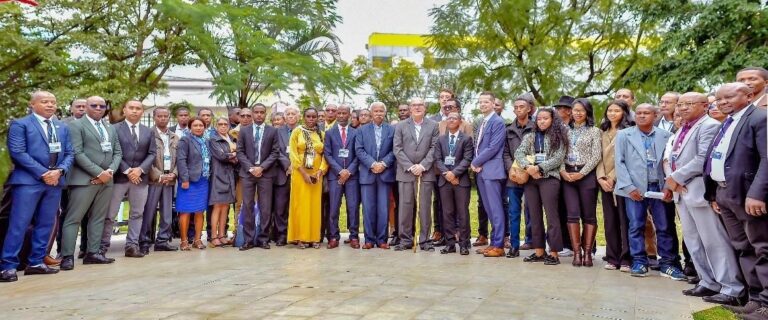A watershed meeting of conservationists and policy makers from across the Western Indian Ocean took decisive action this month to tackle the growing threat of Illegal, Unreported and Unregulated (IUU) industrial fishing in the region. The meeting, which brought together small-scale fishers, policymakers, NGOs and researchers from 10 countries, focused on combating IUU threats to Madagascar, Seychelles, Comoros and Mauritius. In a progressive step for fisheries leaders in this region, delegates at the meeting in Antananarivo resolved to adopt new measures to improve transparency, regional cooperation, surveillance and tangible enforcement in the sector.
Fishing in the Western Indian Ocean (WIO) underpins food security and jobs for up to 60 million people in the region. Yet, these countries, several of which already suffer from high levels of poverty and food insecurity − experience some of the world’s highest levels of IUU fishing, with illegal fishing representing a pervasive and growing threat to marine life, coastal livelihoods and food security.
Globally one-fifth of seafood catches are estimated to be caught through IUU fishing, with estimates of economic losses to the WIO region of more than half a billion dollars annually. “IUU fishing is a global threat to fisheries and needs to be addressed with strong regional cooperation. Our symposium was a starting point for this, both for the benefit of the livelihoods of millions of fishers and for the sustainable management of fisheries,” said Naly Rakotoarivony, Head of Policy and Partnerships at Blue Ventures Madagascar, during the opening remarks.
Given the often international nature of IUU fishing − with many fleets crossing maritime boundaries on fishing missions − solutions require regional and international cooperation. The meeting, convened by Blue Ventures in partnership with the U.S Embassy in Madagascar and Comoros, Madagascar’s Government department responsible for fisheries, and the University of Toliara’s Institut Halieutique et des Sciences Marines, provided an important opportunity to design a regional strategy and network to tackle IUU. Discussions focused on how to improve monitoring and surveillance to identify IUU fishing, improving regional collaboration and transparency in fisheries management, and the potential benefits of new technologies and regulations. Delegates shared the latest information on IUU fishing in each country, and fostering collaboration between governments and civil society. “It gives hope to see all of these actors, government representatives, civil society, regional bodies and small-scale fishers in the same place sharing and engaging in action to combat IUU fishing,” added Rakotoarivony.
Small-scale fishers from Madagascar’s MIHARI network, who shared their experiences of the impact of IUU fishing, provided a powerful testimony of efforts being undertaken by coastal communities to protect coastal waters. Pascal Mahata a small-scale fishers representative from the MIHARI network, Madagascar said: “We, small-scale fishers, confirm our commitment to work together with the authorities to ensure a better governance of our marine resources and request that the resolutions taken during this symposium are properly implemented for the benefit of all actors.”
Proposed resolutions from the symposium include adoption of the Fisheries Transparency Initiative, fostering cooperation through increased data sharing between countries, and strengthening monitoring efforts through joint patrols, incorporating advanced technologies and building capacity. Rijasoa Fanazava, Executive Director of the Fisheries Monitoring Centre in Madagascar highlighted the importance of monitoring control and surveillance: “IUU fishing is an activity that compromises the effectiveness of fisheries management. The consequences of this poor practice affect the economic viability of fishing activities, the social equity of coastal communities and the ecological sustainability of fisheries resources. Thus, I suggest that coastal states pay particular attention to strengthening monitoring, control and surveillance structures and bodies as a major component of fisheries management.”
Delegates from each country voiced their dedication to collaboration in combating IUU fishing in the region and sustaining the momentum achieved during the event. Degambur Dharmendra representing the Ministry of Blue Economy in Mauritius said “I have been very impressed with the discussions at this symposium. First of all, we look forward to joining the Fisheries Transparency Initiative. We have not yet joined but this is one of the future steps.”
Blue Ventures looks forward to further assisting Madagascar and other countries in the region to strengthen their surveillance of IUU fishing, with the participation of small-scale fishers, to enhance fisheries transparency and support the rights of coastal communities to sustainably manage their fishing grounds.























